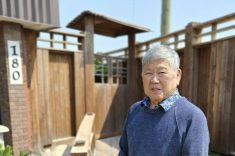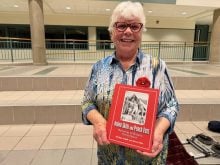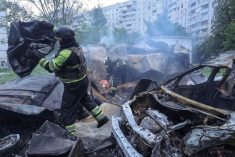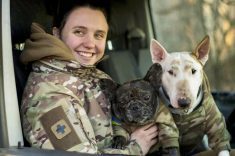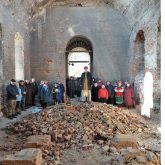Ukrainian farmer Yuriy Vovchenko survived the Russian occupation and constant shelling for eight months, but his life has changed immeasurably.
I have known him for many years, and since the invasion I have wanted to phone him many times but each time I dialed, I stopped, because I was afraid to hear that he was no longer in this world.
But in early September, Ukrainian troops liberated the town of Balaklia in eastern Ukraine. Not far away is the village of Husarivske, where Vovchenko’s large farm is located.
Read Also
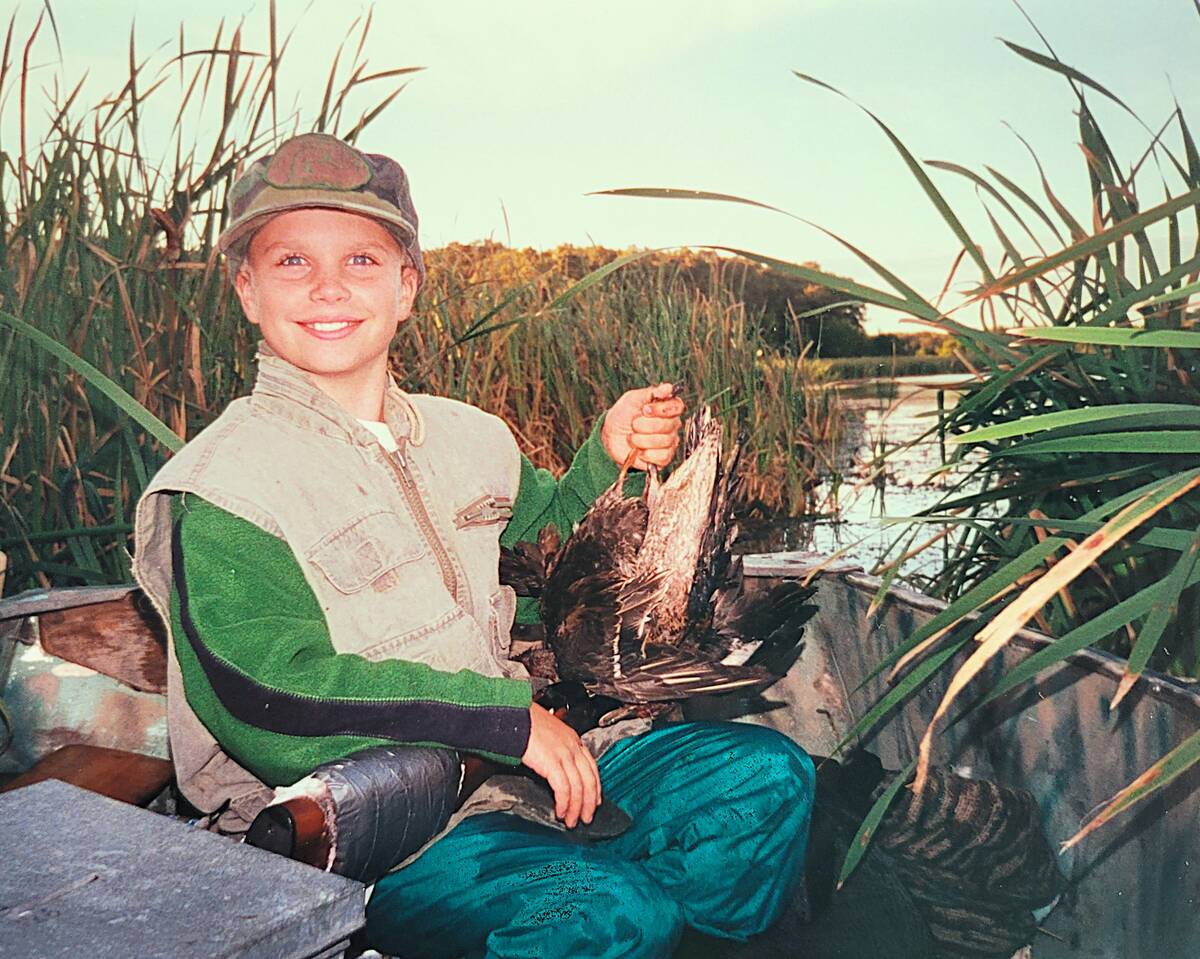
Should you teach your kids to hunt?
Teaching young people to hunt is an important rural tradition in Western Canada and teaches responsibility and love of nature, columnist Tim Sopuck writes.
Yuriy is alive and his story should be read by everyone. It may seem too cruel, too harsh, but it is the human truth that cannot be found in the everyday news.
[More reporting on Ukraine with Ihor Pavliuk]
Building a dream
If you met Vovchenko, you might think he was a university professor rather than a farmer. He is an intelligent and decent person. He studied diligently and graduated university with a gold medal.
Then he started working in an agricultural company that his father created. The two of them built a modern business growing crops and developing livestock production.
“You know how we treated our work,” Vovchenko said when I spoke to him. “We tried to improve every little thing. We helped the local authorities to build infrastructure in the village. We did everything to make it perfect. Now everything, literally everything, has been destroyed.”
The enemy entered his village just three days after the invasion, so most of the people did not have time to evacuate. What the invaders found – empty streets – surprised them.
“They were told that people in eastern Ukraine would greet Russian soldiers with flowers,” Vovchenko said. “However, no one wanted to have anything to do with the occupiers.”

The Russians took everything they wanted with the help of automatic machine guns. They rummaged through storerooms and warehouses, entered homes and took whatever they liked.
“They were also surprised that every Ukrainian has stocks of food and various property at home,” Vovchenko said. “Their eyes literally burned, all the more so because their own supply of products was meagre.”
[RELATED] Editorial: Food security hurt by Russia’s invasion of Ukraine
Confusion and terror
The farmer was struck by the fact that Russian units fired blindly.
“At the beginning of the war, we did not have Ukrainian troops, only Russians,” he said. “But they continued to shoot at their own soldiers from afar and killed them by dozens and hundreds.
“You cannot imagine how many corpses of Russians lie in the open air or inside military machines in our village. There is still a tank with dead occupants in the middle of the village. No one wants to take them out.”
With the losses inflicted on Russians by Ukrainian troops, the village turned into a veritable cemetery.
“They did not put their soldiers in the ground one by one,” Vovchenko said. “So, after one battle, they collected 200 corpses in one pit and covered them with 50 centimetres of ground. Such a grave stands in the middle of our village.”
Vovchenko says the outskirts are littered with burned military machines. At least six Russian helicopters were shot down here.
The occupiers understood they were facing inevitable retribution, so they raged against the civilian population. They found six villagers who were hiding from shelling indoors and called them saboteurs.
“They shot four of them, and two more – they put them on car tires and burned them alive,” Vovchenko said, overcome with emotion.

Older Russian soldiers were more reasonable than the younger ones.
“They [the older soldiers] perfectly understood that they are occupants and that they themselves were condemned to death by Putin,” he said. “That’s what they said: ‘If we retreat, our own soldiers will kill us. If we go forward, then the Ukrainians will kill us.’ But young soldiers … overcome their complexes with the help of a machine gun.”
During occupation of the village, there was no electricity, fuel or goods in the shops.
“We had to somehow take care of people,” Vovchenko said. “I had cows, sheep, pigs. The occupiers slaughtered livestock as much as they wanted, and animals also died as a result of shelling.
“So, I decided to slaughter cattle and feed our people. We also distributed free milk and other products. This allowed them to survive. In the spring I had 2,700 cows. Now only 200 are left.”
[RELATED] Ukraine accuses Russia of stealing grain during war
Under siege
The occupation lasted about a month, until March 28, when Ukraine armed forces liberated the village and Vovchenko’s farm.
Then a new nightmare began. For months, the village and farm were shelled every day.
“Every building on the farm, almost every house in the village was destroyed,” he said. “The Russians fired at us just for fun. They brought cadets from military schools and they learned to hit the target.”
Villagers hid in basements and waited for the horror to end. In September, Ukrainian troops pushed the front line eastward. Then, Vovchenko had to decide how to live.
“They have destroyed up to 70 per cent of agricultural machinery and destroyed all the buildings on the farm,” he said. “We lost 168 tons of fuel, we had absolutely no fodder left. We are now transporting fodder from 50 or 60 kilometres away in order to somehow feed the 200 cows we have left.”

There is still no electricity in the village and almost no mobile communication. Under such conditions, he says, one has to think exclusively about the survival of people, not about business.
“The worst thing is that all the fields, all the forests, most of the roads are mined,” Vovchenko said. “We walk only on narrow paths marked by sappers. I can’t even imagine when it will be safe here. It will take many years to defuse the mines.”
That has been the main obstacle to restoring normal operation of Vovchenko’s farm and many others like it. In his region alone, he estimates there are hundreds of square miles to clear.
“I have a dream that it will be possible to clear at least 500 or 600 hectares by spring,” he said. “We could sow fodder crops and feed livestock on this land. Maybe in four or five years we manage to overcome this problem, but now it seems unbelievable.”
Vovchenko admits the experience of the occupation has changed him. He has always been a peaceful man, but when he mentions the Russian occupiers, his voice and his demeanour change.
“Everything that we created with my father for 22 years has been destroyed,” he said. “These bandits tortured and killed our people. If before I didn’t even think I could kill a person, now I would strangle them with my own hands.”






